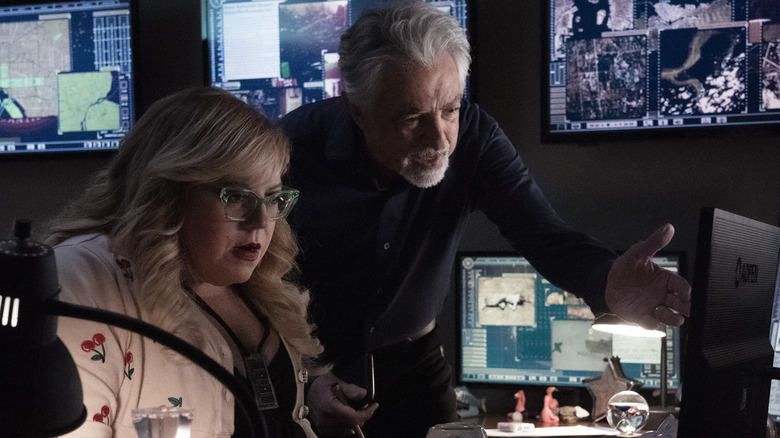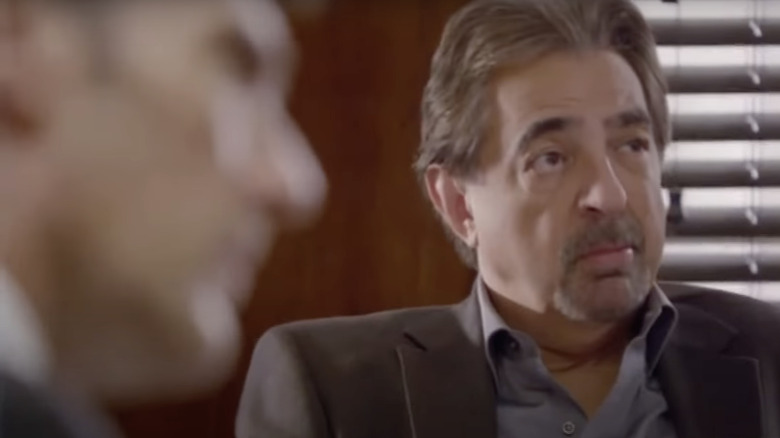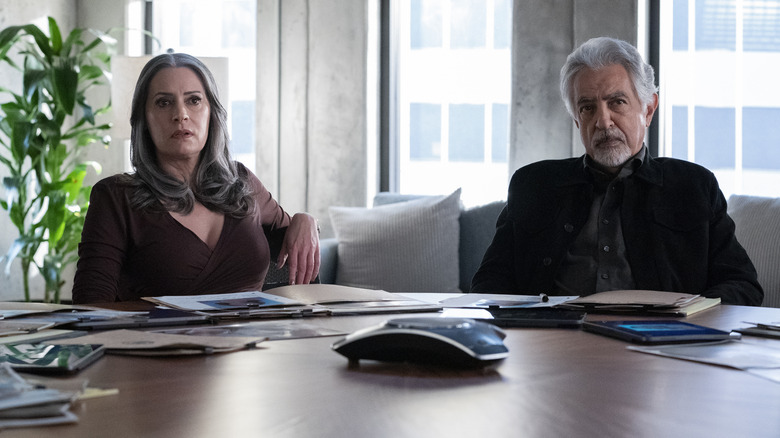Criminal Minds Fans Have A Sense Of Humor About The Most Unrealistic Episode
Though "Criminal Minds" often draws from the real-life grizzly stories of serial killers to keep their show grounded in reality, the series frequently takes liberties that leave some fans scratching their heads. From the "Dexter"-esque villain Elias Voit in Paramount+'s "Criminal Minds: Evolution" to depictions of vampires and werewolves, there's almost always something to remind viewers that this world is far darker and more outrageous than our own.
While many "Criminal Minds" episodes are arguably a bit too sensational to swallow, one episode, in particular, drew a bizarre amount of scrutiny on the r/criminalminds subreddit. The episode in question, Season 8, Episode 5, "The Good Earth," features a serial killer that uses human remains as plant fertilizer.
While this premise may sound a bit far-fetched, it's actually a relatively common practice for body disposal among murderers. In 2018 — several years after "The Good Earth" aired on CBS — a Canadian landscaper was suspected of hiding his crimes within his work, with local police searching his clients' gardens for evidence (via NPR).
So what had Reddit up in arms about the episode? True to form, online users had hilariously huge issues with a tiny aspect of "The Good Earth's" plot — specifically, its depiction of gardening.
Does Criminal Minds even know what an Autumn Harvest is?!
Discussing this episode on the r/criminalminds subreddit in a thread hyperbolically titled "the most unrealistic episode...," u/samclops posited an amusingly specific and well-founded gripe with "The Good Earth." Clearly, this factual inaccuracy was no small tomatoes to the users below.
"The unsub was using victims as fertilizer, in [Oregon], but the shots show tomatoes growing. The episode takes place right before Halloween. NO WAY IN HELL are your tomatoes growing in late October in the northwest? By no means are those an autumn harvest ..." Surprisingly, several others had this same issue with the episode, with another user exclaiming, "FINALLY SOMEONE ELSE WHO SAW IT TOO. IT'S TOO COLD FOR TOMATOES, MUCH LESS THOSE BIG ASS HEIRLOOMS."
"No, no, you're missing the point," joked u/VisibleCoat995. "Obviously, human beings are a super fertilizer that allows anything to grow at any time!" While reading this endless and obviously good-natured ribbing of "Criminal Minds'" seasonal gaffe stirs up memories of some of the series' most ludicrous storylines.
The most unrealistic Criminal Minds stories, according to fans
In a separate thread on the r/criminalminds subreddit, u/sushirolls1028 asked their fellow "Criminal Minds" fans to share which episodes and unsubs they found to be the least realistic. To kick things off, they offered Adam Rain, the subject of Season 8, Episode 10, "The Lesson." His trademark? Turning his victims into human marionettes. Though this gimmick may be better suited for a "Batman" villain, u/sushirolls1028 admits it's still one of their favorite "Criminal Minds" episodes.
U/LittleBitesLover69 offered Season 13, Episode 6, "The Bunker," as their choice — released two years after "Unbreakable Kimmy Schmidt," the episode centers around a group of women trapped in a bunker as part of a delusional doomsday cult. U/sammysummer went all the way back to Season 4, Episode 8, "Masterpiece," in which a Fibonacci-obsessed killer taunted the BAU to show off his intellect.
U/CrazyGen brought up another Season 13 episode titled "Bad Moon on the Rise," which basically bent over backward to justify doing a werewolf episode. To keep a long, ridiculous story short, the plot followed a man tormented by the loss of his son who stalks Central Park on full moons, seeking to kill innocent people in inhumanly gruesome ways. The user wrote, "[The show was] trying to tell me that a middle-aged man with no history of mental illness would believe himself to be a werewolf because his son died on a full moon, sorry I don't buy it." Amidst the slew of episodes mentioned, u/invictus20183 pointed out that the entire show is primarily inaccurate, as it's based on the flawed premise that serial killers are "riddles to be solved" rather than senseless, disturbed criminals.


